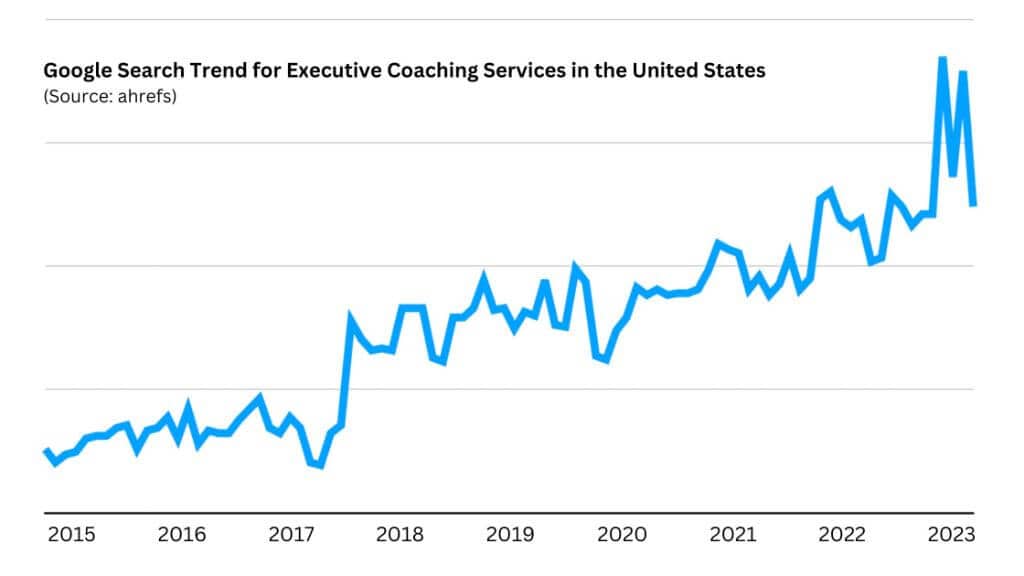Trends in executive coaching suggest that leaders are seeking out executive coaches like never before. Corporations and organizations are creating internal coaching departments to support all levels of management. And professional life coaches are expanding their skill sets to serve high-level clients by seeking certified executive coaching training.
The trend for leaders, managers, and executives to seek out coaching has been rising for years. Before the COVID-19 pandemic, the International Coaching Federation had reported that between 2015 and 2020, leaders and managers had increased the use of coaching by 46%.
When the pandemic forced industries to pivot to virtual workspaces in 2020, where that was possible, coaching support demand increased.

Business Leaders Recognize the Effectiveness of Executive Coaching
As reported by the ICF, the measurable outcomes of working with executive coaches pre-pandemic included:
- Individual performance rose by 70%.
- Team performance increased by 50%.
- Organizational performance increased by 48%.
With executive coaching having such a positive impact, especially during that challenging time, leaders are opting to leverage coaching like never before. According to PwC’s Global Crisis and Resilience Survey from 2023, 89% of business leaders prioritize organizational resilience and choose to be strategic in that prioritization.
Internal and external executive coaching for all levels of leadership has become an essential component of that proactive strategy to be and remain resilient.
Key Focus Areas in Executive Coaching
Professional executive coaches strategically support their leaders in critical areas of development, impacting the leader, their team, and the organization they serve. For example, executive coaches who train and are certified by the iNLP Center explore the following key Impact Areas for Success with their executive clients:
- Communication
- Company Culture of Learning and Personal Development
- Productivity, Output, and Deliverables
- Congruence of Mission and Values
- Goal Setting and Future Visioning
- Creativity and Problem Solving
- Career Satisfaction and Support to Advance
- Leadership and Motivation
- Clarity of Objectives and Implementation
- Leveraging Strengths for Efficiency and Optimization
Benefits and Return on Investment in Executive Coaching
Research from Public Personnel Management found that productivity increases 22% on average with training within the workplace. If the training is combined with coaching, productivity increases to 88%.
Beyond productivity, retention rates are also increased, according to a study by Metrix Global.
Due to the benefits and rising demand for executive coaching, leaders seek certified executive coaches to begin building coaching internally in their organizations and corporations.
Market Trends and Compensation for Executive Coaches
The coaching leaders receive from executive coaches is highly valued, and coach compensation reflects that.
ZipRecruiter has reported that:
“Annual salaries for executive coaches can be as high as $291,000 and as low as $21,500, but the majority of Executive Coach salaries currently range between $49,500 (25th percentile) to $124,500 (75th percentile) with top earners (90th percentile) making $284,500 annually across the United States. The average pay range for an Executive Coach varies greatly (by as much as $75,000), which suggests there may be many opportunities for advancement and increased pay based on skill level, location, and years of experience.”
The Future of Executive Coaching
With the trends continuing to increase, leaders, managers, and executives may soon be no longer asking one another, “Why are you working with an executive coach?” and instead may be asking one another, “Why are you not already working with an executive coach?”.


